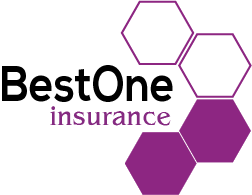When protecting your business, having the right insurance coverage is essential. However, with so many types of insurance policies available, it can be overwhelming to determine which ones are necessary for your specific industry. Fortunately, industry-specific insurance policies are designed to meet the unique needs and risks of different businesses.
Industry-specific insurance policies are tailored to address the specific risks and challenges faced by businesses operating in a particular industry. These policies take into account the industry’s unique characteristics and operations, providing coverage specifically designed to protect against the risks most relevant to that particular field.
One example of an industry-specific insurance policy is professional liability insurance, also known as errors and omissions (E&O) insurance. This type of policy is commonly purchased by professionals such as doctors, lawyers, architects, and consultants. Professional liability insurance covers claims of negligence, errors, or omissions in the professional services provided by these individuals or businesses. It is specifically designed to protect against the risks and liabilities that professionals in these fields face.
Another industry-specific insurance policy is product liability insurance. This type of policy is essential for businesses involved in manufacturing, distributing, or selling products. Product liability insurance covers claims arising from injuries or damages caused by a defective product. It is designed to protect businesses from the financial consequences of product-related lawsuits, including legal defense costs and potential settlements or judgments.
The construction industry also has its own set of industry-specific insurance policies. Contractors and construction companies typically require a combination of policies to protect against the unique risks they face adequately. These may include general liability insurance, which provides coverage for bodily injury, property damage, and personal injury claims; builder’s risk insurance, which covers property damage during construction projects; and contractor’s pollution liability insurance, which protects against claims related to pollution or environmental damage caused by construction activities.
Similarly, the hospitality industry has its own set of industry-specific insurance policies. Hotels, restaurants, and other businesses in the hospitality sector often require policies such as liquor liability insurance, which provides coverage for alcohol-related liability claims; food contamination insurance, which protects against claims arising from foodborne illnesses or contamination; and innkeeper’s liability insurance, which covers claims related to the theft or damage of guests’ property.
The technology industry is another sector that benefits from industry-specific insurance policies. Cyber liability insurance, for example, is designed to protect businesses from the financial consequences of data breaches, cyberattacks, and other cyber-related incidents. With the increasing prevalence of cyber threats and the potential for significant financial losses resulting from data breaches, this type of insurance coverage has become essential for businesses in the technology sector.
These are just a few examples of the industry-specific insurance policies available for businesses. Other industries, such as manufacturing, retail, transportation, and real estate, also have their own unique insurance needs and can benefit from industry-specific coverage.
It is important for business owners to understand the specific risks and liabilities associated with their industry and to work with an experienced insurance professional to determine the most appropriate coverage for their business. By having the right insurance policies in place, businesses can protect themselves against unexpected losses and ensure their long-term success.
In conclusion, industry-specific insurance policies are designed to address the unique risks and challenges faced by businesses operating in a particular industry. These policies provide coverage specifically tailored to protect against the risks most relevant to that industry.
Whether it is professional liability insurance for professionals, product liability insurance for manufacturers, or cyber liability insurance for technology companies, industry-specific policies are essential for businesses to protect themselves and thrive in their respective fields.


